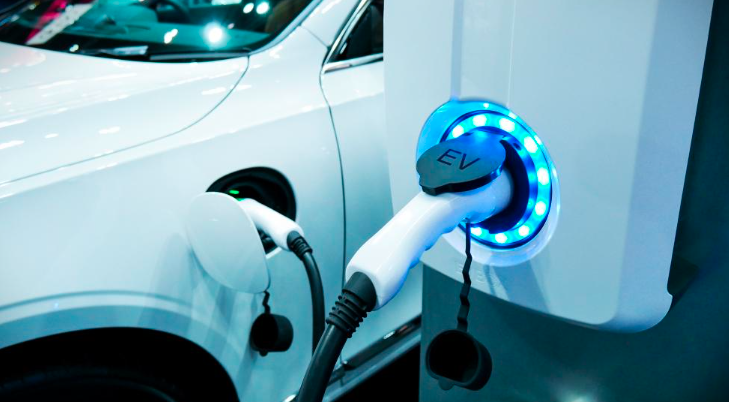ev charger manufacturers – Driving the Future of Sustainable Transportation

As the world steadily shifts towards electric vehicles (EVs) to combat climate change and reduce reliance on fossil fuels, the role of ev charger manufacturers becomes increasingly critical. These manufacturers are the backbone of the charging infrastructure that keeps electric cars running efficiently, enabling widespread adoption and user convenience. In this article, we will explore the landscape of ev charger manufacturers, their importance, the technologies they develop, and the challenges and opportunities within the industry.
The Growing Importance of ev charger manufacturers
With the global EV market growing at an unprecedented pace, the demand for reliable and efficient charging infrastructure is soaring. EV owners require chargers that are safe, fast, and easy to use. This demand has placed ev charger manufacturers in a pivotal position in the global energy transition.
The challenge for these manufacturers is not only to produce hardware but also to innovate continuously, ensuring compatibility with various vehicle types, enhancing charging speeds, and integrating with smart grid technologies.
What Do ev charger manufacturers Do?
ev charger manufacturers design, develop, and produce the equipment that delivers electricity to electric vehicles. This includes a broad range of products, from slow AC chargers suitable for home use to ultra-fast DC chargers designed for commercial and public settings.
The manufacturing process involves several key components:
- Power Electronics: Converting AC to DC power, controlling voltage and current.
- Communication Modules: Enabling smart charging features, such as remote monitoring and payment systems.
- Connectors and Cables: Ensuring safe and compatible connections between the charger and EV.
- User Interface: Display screens and apps for user interaction.
Types of EV Chargers Produced by ev charger manufacturers
Understanding the types of chargers helps clarify the scope of products that ev charger manufacturers provide:
- Level 1 Chargers
These are basic chargers that plug into a standard household outlet. They deliver slow charging, typically adding 3-5 miles of range per hour. - Level 2 Chargers
These use a dedicated 240V supply, offering faster charging times (about 20-30 miles of range per hour). Level 2 chargers are common in homes, workplaces, and public places. - DC Fast Chargers
Providing high voltage direct current, these chargers can replenish an EV battery to 80% in less than 30 minutes. They are essential for highway stations and commercial fleet operations.
Each type demands different design considerations, manufacturing processes, and certification standards.
See also: Some Of the Very Best Milan Travel Attractions
Innovations Driven by ev charger manufacturers
To stay competitive and meet evolving customer needs, ev charger manufacturers are pushing the boundaries of technology with several innovations:
Smart Charging Solutions
Modern chargers can communicate with the grid and the vehicle to optimize energy use. For example, smart chargers can delay charging during peak demand or use renewable energy sources when available, reducing the carbon footprint.
Wireless Charging
Some manufacturers are developing wireless (inductive) chargers that allow EVs to charge without plugging in cables, enhancing convenience.
Modular and Scalable Designs
To cater to various user needs and budget constraints, many manufacturers offer modular chargers that can be easily upgraded or expanded.
Integrated Payment Systems
Public chargers now often include embedded payment terminals or smartphone app integrations, allowing seamless transactions.
Leading Players Among ev charger manufacturers
Globally, several companies have distinguished themselves as leaders in the ev charger manufacturers space:
- ABB: Known for robust industrial-grade chargers, especially in DC fast charging.
- Schneider Electric: Offers comprehensive energy management and charging solutions.
- Tesla: Their proprietary chargers have helped popularize EVs in North America.
- ChargePoint: One of the largest networks providing versatile Level 2 and DC chargers.
- Siemens: Manufactures reliable chargers with an emphasis on integration with smart grids.
Many emerging companies, especially in Asia and Europe, are also innovating aggressively to capture growing markets.
Challenges Faced by ev charger manufacturers
Despite the promising outlook, ev charger manufacturers face several hurdles:
- High Production Costs: Advanced components, compliance with safety standards, and software development drive costs up.
- Standardization Issues: Multiple connector types and charging protocols can complicate manufacturing and limit interoperability.
- Grid Impact: Rapid charging places heavy loads on electrical grids, requiring manufacturers to incorporate grid-friendly features.
- Supply Chain Disruptions: Semiconductor shortages and raw material price fluctuations can impact production timelines.
Overcoming these challenges requires collaboration with governments, utilities, and EV makers.
Market Trends and Future Outlook
The market for EV charging equipment is expected to grow exponentially in the coming decade. Key trends influencing ev charger manufacturers include:
- Government Incentives: Many countries offer subsidies and grants to accelerate infrastructure deployment.
- Urbanization: Increased installation of chargers in cities to support dense EV usage.
- Fleet Electrification: Commercial fleets switching to EVs drive demand for fast, reliable chargers.
- Energy Storage Integration: Chargers paired with battery storage systems to manage load and provide resilience.
The future will likely see ev charger manufacturers offering turnkey solutions that combine hardware, software, and energy management.
How ev charger manufacturers Impact Consumers and Businesses
For EV owners, the quality and availability of chargers directly influence their experience. Reliable, accessible chargers mean less “range anxiety” and more confidence in switching to electric vehicles.
For businesses, particularly those managing fleets or operating charging networks, partnerships with dependable ev charger manufacturers ensure uptime, safety, and scalability.
Conclusion
The rise of electric mobility hinges on robust, smart, and scalable charging infrastructure, and ev charger manufacturers are at the heart of this transformation. From innovative technologies to overcoming production challenges, these manufacturers play a vital role in driving the global shift toward cleaner transportation.
Investing in the development and deployment of efficient EV chargers is not only a business opportunity but a necessary step toward a sustainable future. As EV adoption accelerates, the influence and responsibilities of ev charger manufacturers will only grow.
